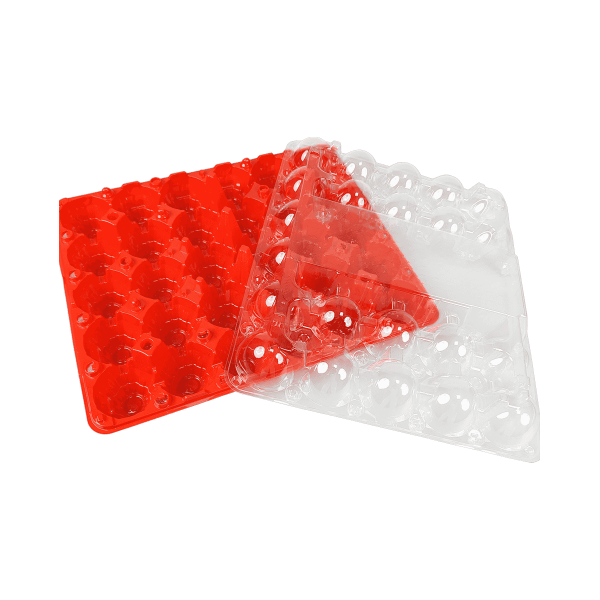In the world of packaging, where functionality and sustainability increasingly dictate design, plastic egg cartons stand out as a staple solution. These containers, crafted from lightweight yet durable materials, serve a dual purpose: safeguarding delicate eggs during transit and ensuring maximum shelf appeal for retailers. With their distinctive features and growing relevance, plastic egg cartons continue to shape the landscape of modern food packaging.
Durable Protection Meets Practical Design
Eggs, by nature, are fragile commodities. A single crack can compromise quality, rendering the product unsuitable for sale or consumption. Plastic egg cartons excel in mitigating this risk. Unlike traditional cardboard alternatives, their rigid structure offers superior resistance to compression, ensuring eggs remain unscathed through the rigors of transportation and handling.
Their molded design, typically in 6, 12, or 18-egg configurations, snugly holds each egg in place, minimizing movement and preventing collisions. The transparency of the material further enhances functionality, allowing consumers to inspect the contents without opening the carton, a convenience that adds value to the overall shopping experience.
Aesthetic Appeal for the Retail Market
In a competitive retail environment, packaging is more than protection—it is a visual ambassador for the product. Plastic egg cartons provide a sleek, modern aesthetic that appeals to today’s discerning consumers. Their crystal-clear finish not only highlights the natural freshness of the eggs but also allows brands to incorporate creative labeling and graphics without obstructing visibility.
Retailers benefit from their stackable nature, which optimizes shelf space and ensures a clean, organized display. This combination of practicality and elegance makes plastic egg cartons a preferred choice for premium and organic egg brands aiming to differentiate themselves in the marketplace.

Sustainability in Focus
As environmental concerns mount, the packaging industry faces scrutiny over its role in waste generation. While plastic egg cartons have traditionally drawn criticism for their environmental footprint, innovations in material science are rewriting the narrative. Manufacturers are increasingly adopting recycled PET (rPET) and biodegradable plastics, offering solutions that are both eco-friendly and economically viable.
These advancements not only reduce reliance on virgin materials but also support circular economies by promoting the reuse and recycling of existing resources. Additionally, the durability of plastic cartons minimizes product loss due to breakage, an often-overlooked aspect of sustainable practices.
The Road Ahead for Plastic Egg Cartons
The future of plastic egg cartons hinges on striking a balance between performance, aesthetics, and environmental responsibility. As technology evolves, we can expect continued innovation in materials and design, paving the way for lighter, stronger, and greener solutions.
For brands and retailers, embracing such advancements represents an opportunity to align with consumer expectations and environmental commitments. For consumers, it means greater confidence in the products they buy and the packaging they encounter.